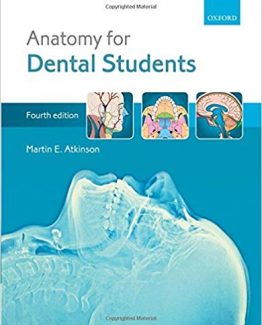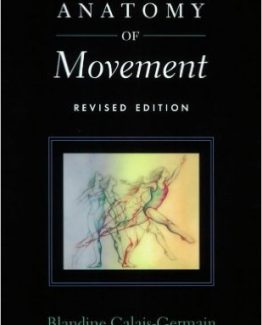Psychology Eighth Edition by Peter O. Gray, ISBN-13: 978-1319015893
[PDF eBook eTextbook]
- Publisher: Worth Publishers; Eighth edition (December 22, 2017)
- Language: English
- ISBN-10: 1319015891
- ISBN-13: 978-1319015893
The primary purpose of a liberal arts education is to gain experience in thinking critically about ideas. Information today is available at everyone’s fingertips; we don’t need to store a lot of it in our heads. We do, however, need to use our heads to evaluate information and apply it logically to larger ideas. As authors, we hope that students who are introduced to psychology through our book will almost reflexively ask, upon hearing of some new idea in psychology, “What is the evidence?” and will feel empowered to think logically and critically about that evidence.
Even if this book’s goal were merely to teach students the main concepts of psychology, the best means would still be one that stimulates thought. As cognitive psychologists have shown repeatedly, the human mind is not particularly good at absorbing and remembering miscellaneous pieces of information. It is designed for thinking, figuring out, and understanding, and it remembers what it understands. In the absence of some knowledge of the logic and evidence behind them, the concepts in psychology are words devoid of meaning.
In this book, critical thinking does not come in separate boxes. It is—if we have done our job—woven through almost every paragraph of the text. We have entered each domain of psychology to identify its main questions, its main approaches to answering questions, its main discoveries, and the most durable ideas and theories that have resulted from those discoveries. In writing each edition of this book, we have constantly imagined ourselves carrying on a dialogue with an inquiring, thinking, appropriately skeptical student.
One of our dearest aims has been to achieve some small measure of the personal touch that William James accomplished so masterfully in The Principles of Psychology—the book that still stands, in our minds, as the best introduction to psychology ever written. While reading James, one constantly senses a mind at work, a mind that is honestly struggling to understand the big issues in psychology and that invites readers into the process. We also confess to sharing two of James’s biases: rationalism and functionalism. As rationalists, we are uncomfortable presenting findings and facts without trying to make sense of them. Sometimes instruction in psychology overplays the methods for gathering and analyzing data and underplays the value of logical thought. As functionalists, we want to know why, in terms of survival or other benefits, people behave as they do.
The functionalist theme runs through the book and is particularly emphasized in Chapter 3, where we introduce Darwin’s theory of evolution by natural selection and its relevance for understanding behavior, and Chapter 8, where we discuss the psychology of learning. Natural selection and learning are the two reasons behavior is functional, and it is important that students know something about those processes and their interaction. The functionalist orientation also leads us, throughout the book, to pay more than the usual amount of attention to cross-cultural research and to behavioral
Table of Contents:
An Introduction and Note From Peter Gray
An Introduction and Note From David Bjorklund
Preface
Media and Supplements
Acknowledgments
PART I Foundations for the Study of Psychology
Chapter 1 Background to the Study of Psychology
Chapter 2 Methods of Psychology
PART II The Biological Bases of Behavior
Chapter 3 Genetics and Evolutionary Foundations of Behavior
Chapter 4 The Neural Control of Behavior
Chapter 5 Mechanisms of Motivation and Emotion
Part III Sensation and Perception
Chapter 6 Smell, Taste, Pain, Hearing, and Psychophysics
Chapter 7 The Psychology of Vision
Part IV Learning and Thinking
Chapter 8 Basic Processes of Learning
Chapter 9 Memory, Attention, and Consciousness
Chapter 10 Solving Problems: Reasoning and Intelligence
Part V Growth of the Mind and Person
Chapter 11 The Development of Body, Thought, and Language
Chapter 12 Social Development
Part VI Social and Personality Psychology
Chapter 13 Social Psychology
Chapter 14 Personality
Part VII Psychological Disorders and Treatment
Chapter 15 Psychological Disorders
Chapter 16 Treatment of Psychological Disorders
Statistical Appendix
Glossary
References
Name Index
Subject Index
Peter Gray, Ph.D., was a full-time professor of psychology at Boston College for 30 years, where he served his department at various times as Department Chair, Undergraduate Program Director, and Graduate Program Director. He has published research in biological, evolutionary, cultural, developmental, and educational psychology; published articles on innovative teaching methods; taught more than 20 different undergraduate courses, including, most regularly, introductory psychology; helped develop a university-wide program to improve students’ study and learning skills; and developed a program of research practicum courses. He is now retired from regular teaching but maintains a position as Research Professor at Boston College. Most of his current research and academic writing has to do with the value of play, especially free age-mixed play, in children’s development. He is also author of Free to Learn: Why Unleashing the Instinct to Play Will Make Our Children Happier, More Self-Reliant, and Better Students for Life (Basic Books) and writes a popular blog for Psychology Today magazine entitled Freedom to Learn: The Roles of Play and Curiosity as Foundations for Learning.
Before joining Boston College, Peter Gray studied psychology as an undergraduate at Columbia University and earned a Ph.D. in biological sciences at the Rockefeller University. He earned his way through college by coaching basketball and working with youth groups in New York City. As a graduate student, he directed a summer biology program for talented high school students from impoverished neighborhoods. His avocations today include long distance bicycling, kayaking, backwoods skiing, and vegetable gardening.
David F. Bjorklund, Ph.D., is a Professor of Psychology at Florida Atlantic University, where he has taught graduate and undergraduate courses in developmental and evolutionary psychology since 1976. He received a B.A. in psychology from the University of Massachusetts, an M.A. in psychology from the University of Dayton, and a Ph.D. in developmental psychology from the University of North Carolina at Chapel Hill. He has received numerous teaching and research awards from Florida Atlantic University and is the recipient of an Alexander von Humboldt Research Award.
David Bjorklund served as Associate Editor of Child Development (1997–2001) and is currently serving as Editor of the Journal of Experimental Child Psychology. He has served on the editorial boards of numerous journals and also served as a contributing editor to Parents Magazine. He has published more than 200 scholarly articles on various topics relating to child development and evolutionary psychology and has received financial support for his research from the National Science Foundation, the Spencer Foundation, and the German Research Foundation. David Bjorklund’s other books include Children’s Thinking: Cognitive Development and Individual Differences, now in its sixth edition (with Kayla Causey, 2018, Sage); Why Youth Is Not Wasted on the Young (2007, Blackwell); Child and Adolescent Development: An Integrative Approach (with , Carlos Hernández Blasi, 2012, Cengage); Looking at Children: An Introduction to Child Development (with Barbara Bjorklund, 1992, Brooks/Cole); Parents Book of Discipline (with Barbara Bjorklund, 1990, Ballantine); Applied Child Study (with Anthony Pellegrini,1998, Erlbaum); The Origins of Human Nature: Evolutionary Developmental Psychology (with Anthony Pellegrini, 2002, American Psychological Association); Children’s Strategies: Contemporary Views of Cognitive Development (1990, Erlbaum); False-Memory Creation in Children and Adults: Theory, Research, and Implications (2000, Erlbaum); and Origins of the Social Mind: Evolutionary Psychology and Child Development (with Bruce Ellis, 2005, Guilford). His current research interests include children’s cognitive development and evolutionary developmental psychology. He lives in Jupiter, Florida, with his wife Barbara and enjoys traveling, cooking, playing basketball, and kayaking. He welcomes sincere feedback concerning this textbook from students as well as faculty.
What makes us different?
• Instant Download
• Always Competitive Pricing
• 100% Privacy
• FREE Sample Available
• 24-7 LIVE Customer Support






Reviews
There are no reviews yet.